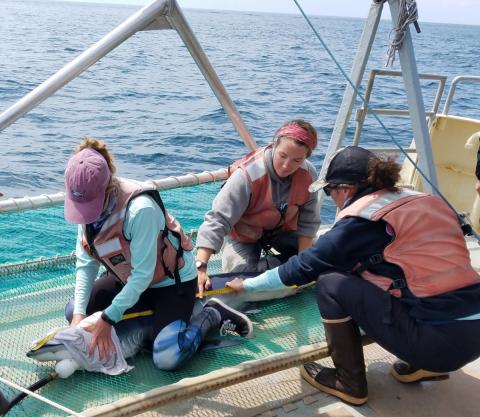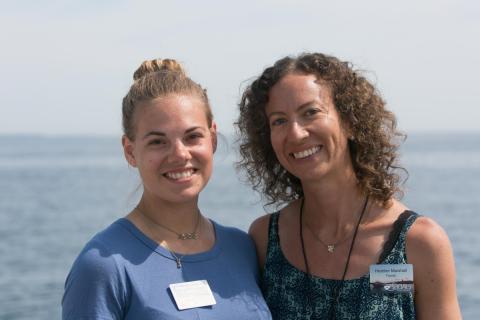Course Dates
July 14, 2025 to July 28, 2025
Prerequisites
At least one semester of college-level biology or equivalent; background in marine or vertebrate biology is recommended, but not required.
Course Description

The last 30 years have produced an explosion of new information on the biology of the approximately 1,000 living species of sharks, skates, rays, and chimaeras, which collectively make up the group Chondrichthyes. This course will cover advanced topics in the evolution, diversity, anatomy, functional morphology, physiology, sensory systems, behavior, reproduction, development, and conservation of cartilaginous fishes.
Learning outcomes for Shark Biology and Conservation include:
- Understanding of elasmobranch phylogeny and evolution.
- Knowledge of how evolution has resulted in a wide variety of elasmobranch anatomical, physiological and morphological specializations.
- Develop a working knowledge of the research methods used to advance understanding of shark biology, ecology, and conservation.
- Understanding of shark research, objectives, and study species in the Gulf of Maine.

Shark Biology and Conservation Scholarship Opportunity:
The Atlantic White Shark Conservancy and its Gills Club are offering one full-ride scholarship for Shark Biology and Conservation at SML this summer!
Status
Course Numbers
Cornell: BIOSM 4650 (3 Credits)
UNH: MEFB 741 (4 Credits)
Faculty

Maggie Winchester-Weiler (left) & Dr. Heather Marshall (right)
Dr. Heather Marshall
Dr. Heather Marshall's research is focused on shark physiological ecology, with an emphasis on conservation physiology. Heather obtained her MSc in 2009 and Ph.D. in 2014, both from the University of Massachusetts Dartmouth. Heather’s early work focused on cardiac physiology and ecology of highly migratory cold-water species of the North Atlantic Ocean, as well as investigating the stress physiology and post-release mortality rates of sharks impacted by commercial fisheries.
Heather moved to Florida in 2014 for a Postdoctoral Research Fellow position at Mote Marine Laboratory. In the following years, she has performed numerous tagging and blood sampling projects around the world, working with species such as the white, tiger, salmon, and hammerhead sharks, along with many other coastal species found in Florida.
Heather is a co-founder of the research and educational groups Field Lab Consulting, LLC and The Gills Club, and an Assistant Professor in the Natural Science Department and Biotechnology Program at State College of Florida.
Maggie Winchester-Weiler
Maggie Winchester has a Master's degree from the University of Massachusetts Dartmouth in Marine Biology with a focus on shark physiology. Her research is primarily focused on the effects of fishing-related stress and climate change on the cardiac function of elasmobranch fishes, but she has also studied electroreception, dietary preferences, and trophic niche distribution of benthic sharks and stingrays. She is currently involved in research focused on the heart physiology of Greenland sharks.
Maggie currently works for the Ocean Conservancy as Florida Conservation Specialist, is a member of the Gills Club Science Team, and is a research consultant with Field Lab Consulting.
